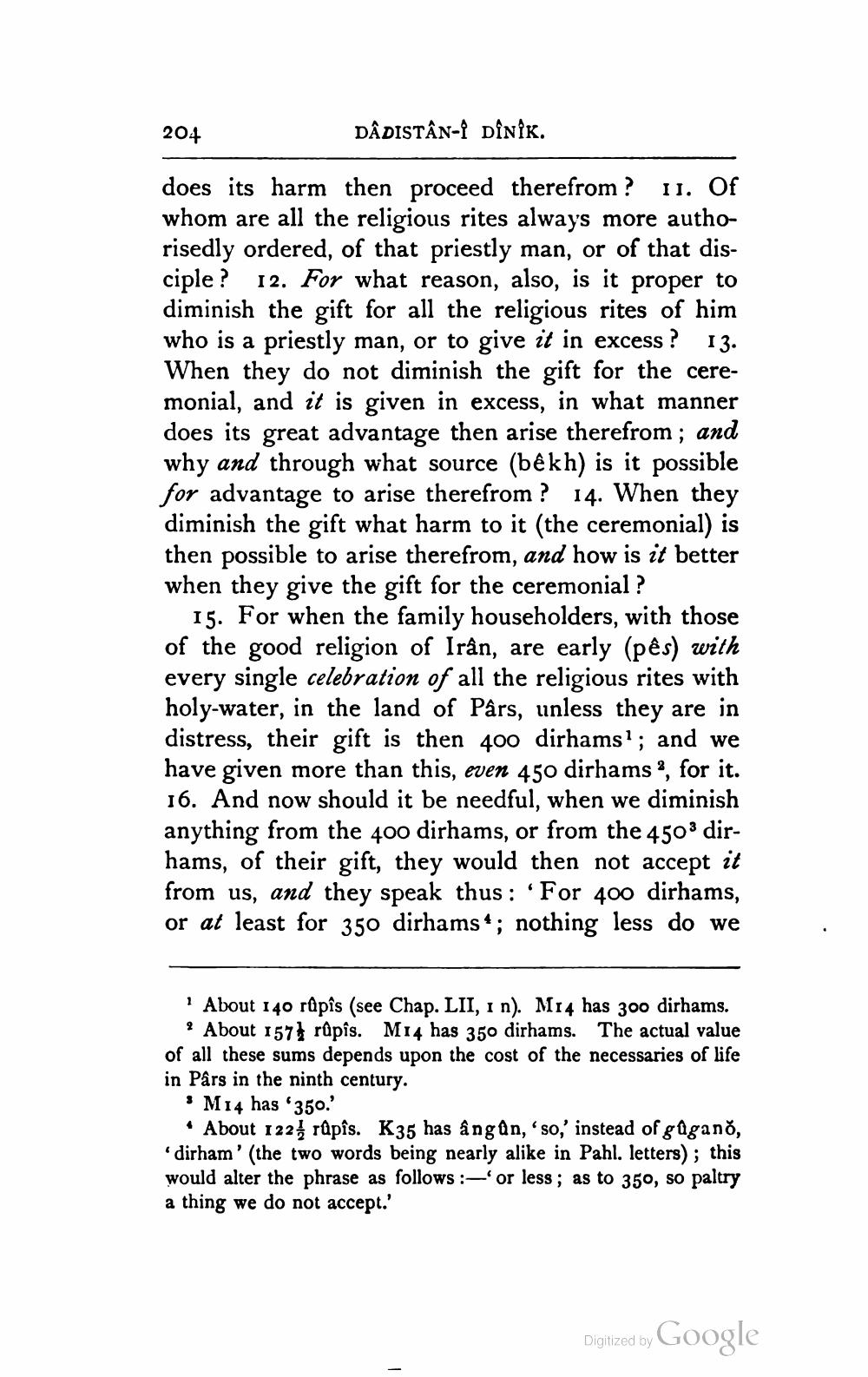________________
204
DÂDISTÂN-Î DÎNÍK.
does its harm then proceed therefrom? 11. Of whom are all the religious rites always more authorisedly ordered, of that priestly man, or of that disciple? 12. For what reason, also, is it proper to diminish the gift for all the religious rites of him who is a priestly man, or to give it in excess ? 13. When they do not diminish the gift for the ceremonial, and it is given in excess, in what manner does its great advantage then arise therefrom; and why and through what source (bêkh) is it possible for advantage to arise therefrom? 14. When they diminish the gift what harm to it (the ceremonial) is then possible to arise therefrom, and how is it better when they give the gift for the ceremonial ?
15. For when the family householders, with those of the good religion of Irân, are early (pês) with every single celebration of all the religious rites with holy-water, in the land of Pârs, unless they are in distress, their gift is then 400 dirhams?; and we have given more than this, even 450 dirhams », for it. 16. And now should it be needful, when we diminish anything from the 400 dirhams, or from the 4503 dirhams, of their gift, they would then not accept it from us, and they speak thus : 'For 400 dirhams, or at least for 350 dirhams *; nothing less do we
| About 140 rûpis (see Chap. LII, 1 n). M14 has 300 dirhams.
2 About 157 rûpis. M14 has 350 dirhams. The actual value of all these sums depends upon the cost of the necessaries of life in Pârs in the ninth century.
* M14 has '350. • About 122 rûpîs. K35 has ângan, so,' instead of gûgano, dirham' (the two words being nearly alike in Pahl, letters); this would alter the phrase as follows:-'or less; as to 350, so paltry a thing we do not accept.'
Digitized by Google




